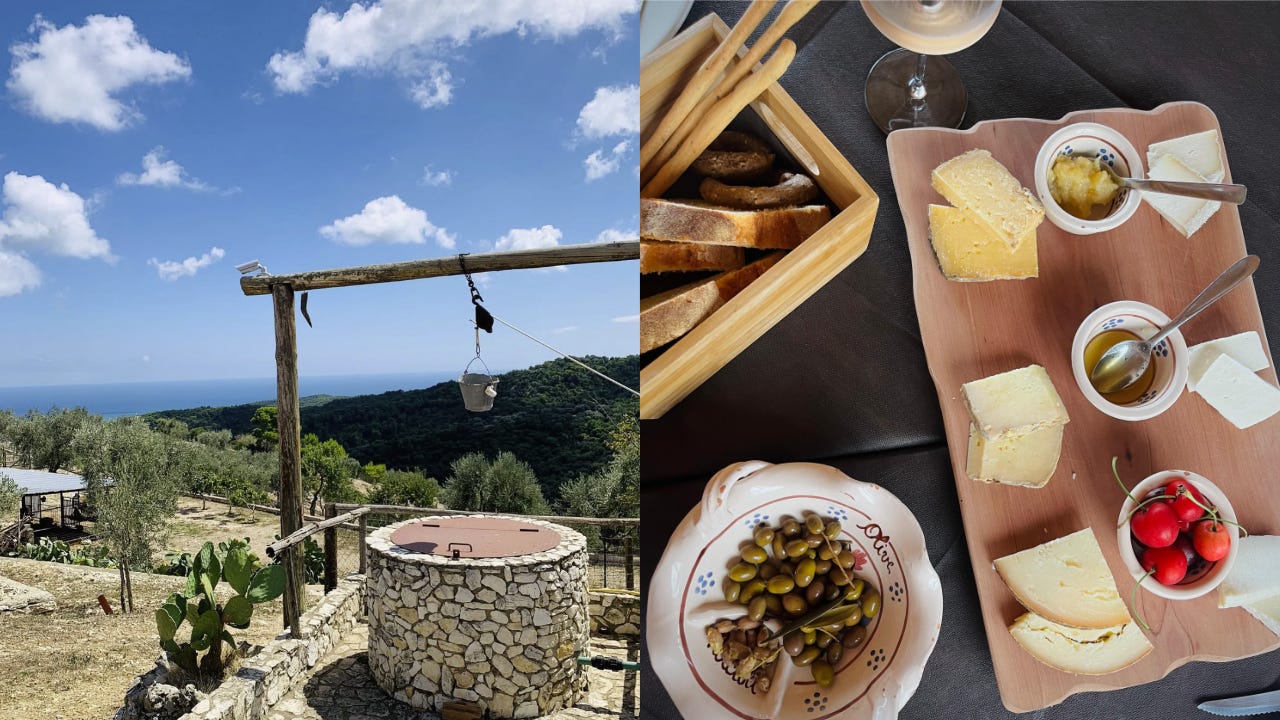Our Posti del Cuore | The best Masseria in northern Puglia
The Gargano peninsula offers great (gastronomic) richness beyond its coast
Welcome to another issue of our Posti del Cuore, places “of the heart”. Trattorie, specialty shops and food labs are amongst the collection curated by the La Panza Piena team, whose aim is to celebrate the hard work the people in each place do, and have been doing for generations.
Masseria San Salvatore
By Laís Zimmermann: exploring Puglia and southern Italy one small producer at a time
I had planned to spend a sunny weekend enjoying the crystalline beaches of Vieste, in the Gargano region of Puglia, but was instead greeted with constant rain and cold winds.
I was not going to waste the many-hour tortuous trip to this beautiful region, but my gastronome soul couldn’t just go to a random restaurant, I was looking for a special place: a great view, delicious homemade food and genuine history behind it - and that’s how I found Masseria San Salvatore.
A short trip up the hill from Vieste and I was greeted by lush green mountains, goats, pigs and the blue Adriatic sea in the background.
Michela, the current owner, explained that the history of the masseria started with her great-grandparents who produced olive oil, olives, grain and meat - especially from indigenous species such as the Garganica goat and Podolica cow. Nowadays she, her husband and kids also produce a delicious goat milk cacioricotta (a hard, salty ricotta) that is used for their famous orecchiette pomodoro e cacioricotta, while the cows milk is transformed into the rare caciocavallo podolico, enjoyed best grilled over an open flame.
My lunch started off on a strong note with a tasting of their six cheeses paired with homemade jams, honey and seasonal fruits. Next, goat prosciutto accompanied by salty cartellate and onion jam. The garlicky olives in their own dedicated plate were another highlight, as well as the pasta dishes with local grains and legumes, and the wild boar ragu. These wild boar are the reason Michela doesn’t grow grain at the Masseria anymore, as they destroy all the plants.
Of course the meal had to end with a homemade crostata, wild fennel liquor and a pit stop at their small shop, where I bought some olives and a tin of Michela’s pride and joy, their organic olive oil.
My visit ended with a nice, “digestive” walk around the property where I envied all the animals and olive trees who spend their days surrounded by so much green and the blue sea.





